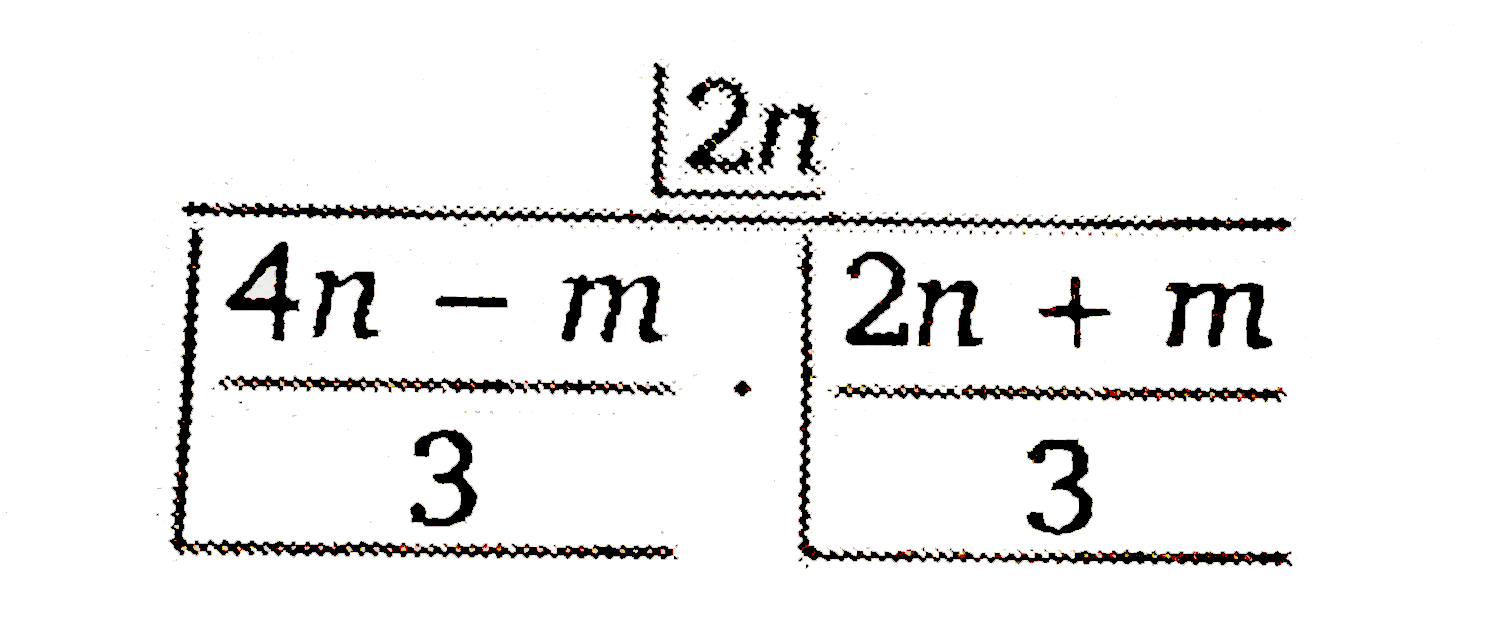The coefficient of xm in (1+x)m+(1+m)m+1+...+(1+x)n,m≤n is
n+1Cm+1
n−1Cm−1
nCm
nCm+1
The correct Answer is:A
Step by step video & image solution for The coefficient of x^m in (1+x)^m +(1+m)^(m+1) +...+(1+x)^n ,m≤n is by Maths experts to help you in doubts & scoring excellent marks in Class 11 exams.
Updated on:21/07/2023Topper's Solved these Questions
- BINOMIAL THEOREM AND ITS APPLCIATIONS Book:OBJECTIVE RD SHARMA ENGLISHChapter:BINOMIAL THEOREM AND ITS APPLCIATIONS Exercise:Chapter Test
Explore 58 Videos
- BINOMIAL THEOREM AND ITS APPLCIATIONS Book:OBJECTIVE RD SHARMA ENGLISHChapter:BINOMIAL THEOREM AND ITS APPLCIATIONS Exercise:Section I - Assertion Reason Type
Explore 13 Videos
- CARTESIAN CO-ORDINATE SYSTEM Book:OBJECTIVE RD SHARMA ENGLISHChapter:CARTESIAN CO-ORDINATE SYSTEM Exercise:Exercise
Explore 27 Videos
Similar Questions
The term independent of x in (1+x)m(1+1x)n is
View SolutionThe term independent of x in (1+x)m(1+1x)n is
View SolutionIf m,n,r,∈N then .mC0.nCr+.mC1.nCr−1+……..+.mCr.nC0
= coefficient of xr in (1+x)m(1+x)n
= coefficient of xf in (1+x)m+n
The value of r for which S=.20Cr..10C0+.20Cr−1.10C1+.........20C0.10Cr is maximum can not be
View SolutionIf m,n,r,∈N then .mC0.nCr+.mC1.nCr−1+……..+.mCr.nC0
= coefficient of xr in (1+x)m(1+x)n
= coefficient of xf in (1+x)m+n
The value of r(0≤r≤30) for which S = .20Cr.10C0+.20Cr−1.10C1+........+.20C0.10Cr is minimum can not be
View SolutionIf 'n' is a positive integer then prove that the coefficient foxm in the expansion of (x2+1x)2n is :

View SolutionIf 'n' is a positive integer then prove that the coefficient foxm in the expansion of (x2+1x)2n is :

View SolutionSTATEMENT - 1 : The term independent of x in the expansion of (x+1x+2)m is (2m)!(m!)2
STATEMENT - 2 : The coefficient of xb in the expansion of (1+x)n is .nCb.
View SolutionIf a and b denote respectively the coefficients of xmand xn in the expansion of (1+x)m+n , then write the relation between a and b.
View SolutionIf a and b are respective coefficients of xm and xn in the expansion of (1+x)m+n then
View SolutionIf the coefficient of x2+ coefficient of x in the expanssion of (1+x)m(1−x)n,(m≠n) is equal to – m, then the value of n – m is equal to:
View Solution
